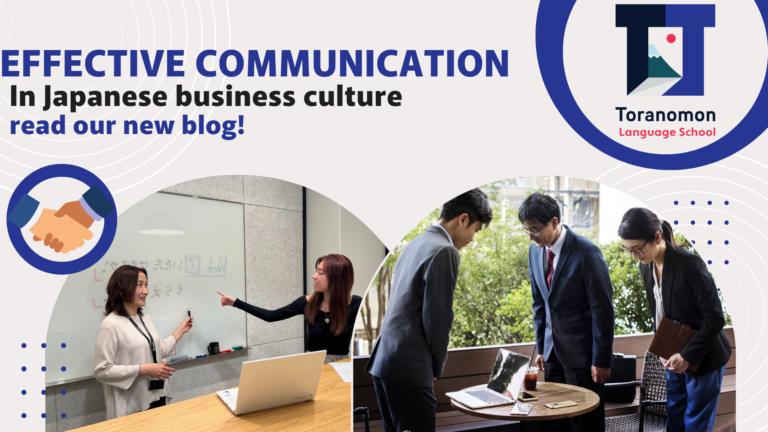
Effective use of communication is the key to success, but cross-cultural communication can either help or hurt your business productivity. When engaging with international companies, specifically Japan where lots of emphasis is placed on work culture, it can be intimidating. Let us share with you some insights for verbal and nonverbal communication inJapanese business culture and how to effectively communicate with Japanese companies.
When it comes to business, Japanese people want to do it with someone they know they can trust. Relationships are often built through informal gatherings involving a large amount of eating and drinking
Punctuality
First and foremost, do not be late. There are no excuses for tardiness here, and punctuality is as much appreciated as it is expected. When you establish a time to arrive, it is important to deliver on that promise. Never agree to a time if you are questioning whether or not you can make it. Be confident when agreeing to a schedule. When you must be late, be sure to let them know at least 30 minutes ahead of time.

Communication Style
Communication styles in Japanese business differ significantly from the US or many western cultures. It is important to accept this and adapt to their style. In Japan, communication is often implicit. Many key parts of crucial information will be left unsaid because it is assumed the other party already understands the context. Conversely, the US and western cultures are much more explicit in communication meaning the messages are straightforward. To avoid confusion in interactions within the Japanese business community, it is advised to search topics online and clarify any uncertainties yourself.

Bowing
In Japan, bowing is seen an expression of respect and gratitude. This nonverbal gesture shows acknowledgment of the other person and is the backbone of a social interaction. This is a great first impression when setting the tone for an interaction. A nod while bowing can indicate agreement.

Avoiding Conflict
Avoiding tension or conflict in Japan is often prioritized. A room will sometimes become silent in order to release the tension and allow people to remove themselves from the negativity. Be careful to not come across too strong when opposing any point. In western business cultures arguments about decision making in a work place may be seen as strictly business, but in Japan it may come across as a personal matter to some people.
Business Cards
Exchanging business cards is a very essential routine during meetings in Japan. This exchange allows the Japanese to quickly grasp the idea of the person’s title and position. When offering an item to someone or receive something, always do it with two hands, grabbing something with one is seen as rude. After the card has been offered or received, a slight bow is often preformed and the right thing to do is take some time to quickly look over the card rather than putting it directly in your pocket.
Business in Japan can be a rewarding experience, but it is important to be mindful of the cultural differences. By understanding and respecting the Japanese culture of business, foreigners can build strong relationships and succeed in the Japanese market. Incorporating these insights will enhance your business success.

Check out our intensive Japanese courses for adults here at Toranomon Language School where we prioritize your learning in an environment that is enjoyable and comfortable. Join us in our one month course to learn essential Japanese customs and language.
Our twice a week casual course for adults focuses on conversation so you can speak confidently in just one month. Make your life easier by learning practical Japanese phrases and learning how to engage in basic conversations.
Our adult private Japanese classes are offered for all levels. Whether you are beginner, intermediate or advanced, we provide high-quality and flexible courses with a wide range of content adjusted for your learning needs.
For your kids, enroll in our summer courses at Toranomon Language School. Classes are offered Monday through Thursday where the kids participate in traditional classroom activities. On Fridays, the “Walk and Learn” programs are held where kids actually explore the city of Tokyo and stop at places such as Tokyo Tower, Science Museum, or local convenience stores, immersing themselves in the culture, applying their language they learned in the classroom.
Book our Free Consultation today and start speaking English more confidently!


